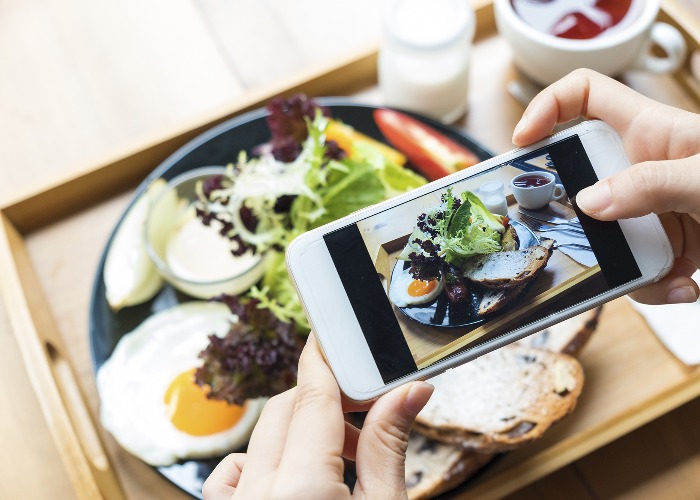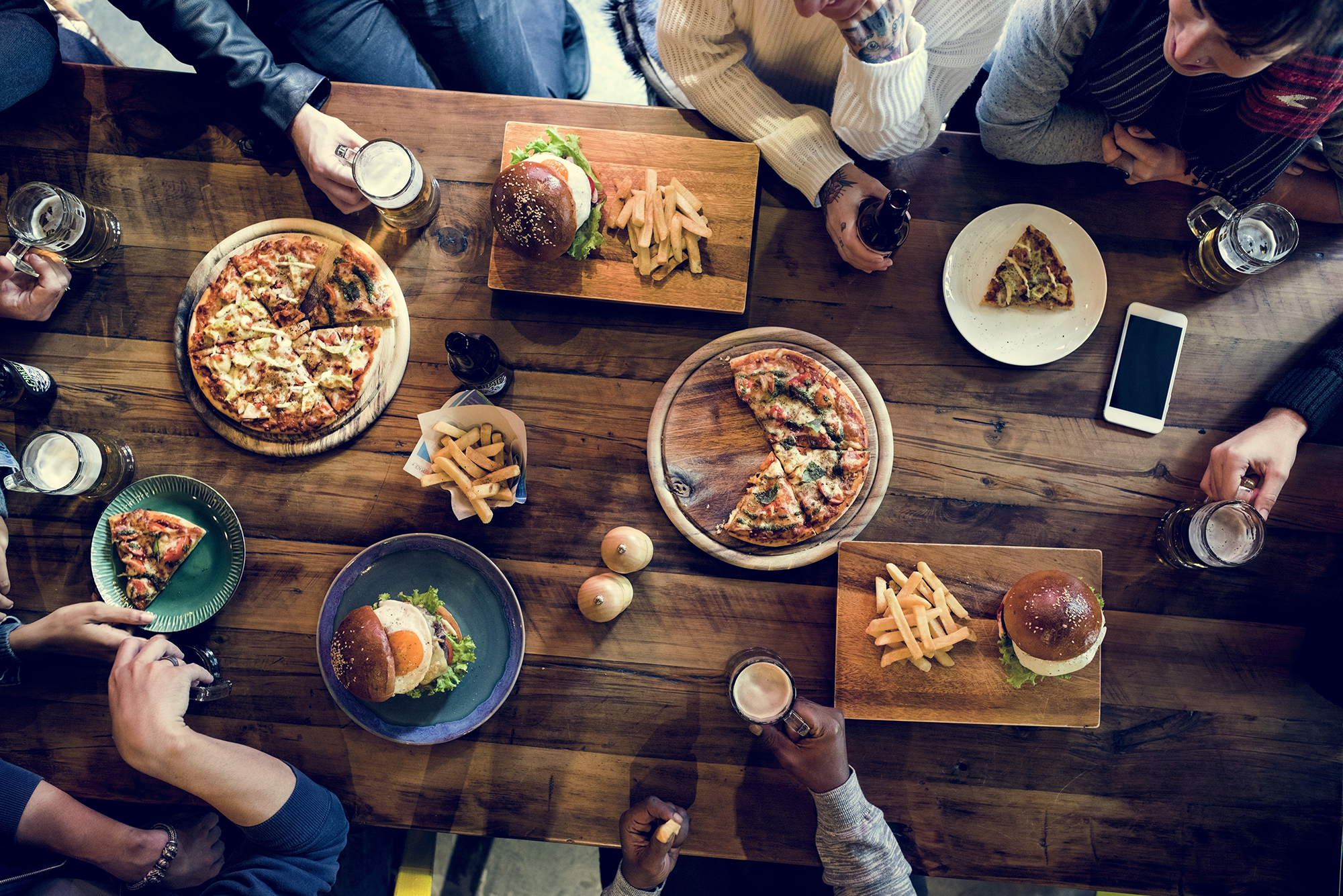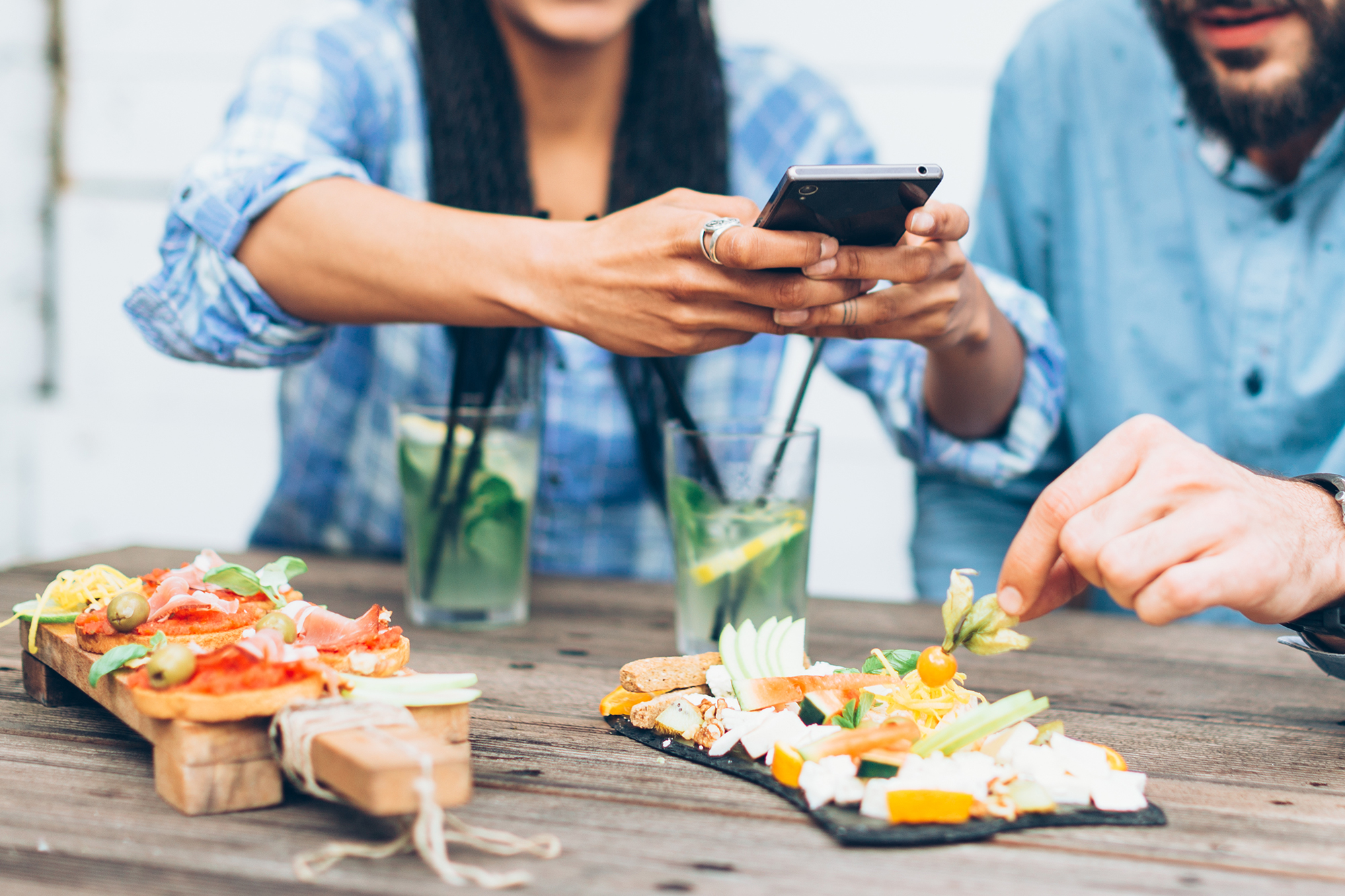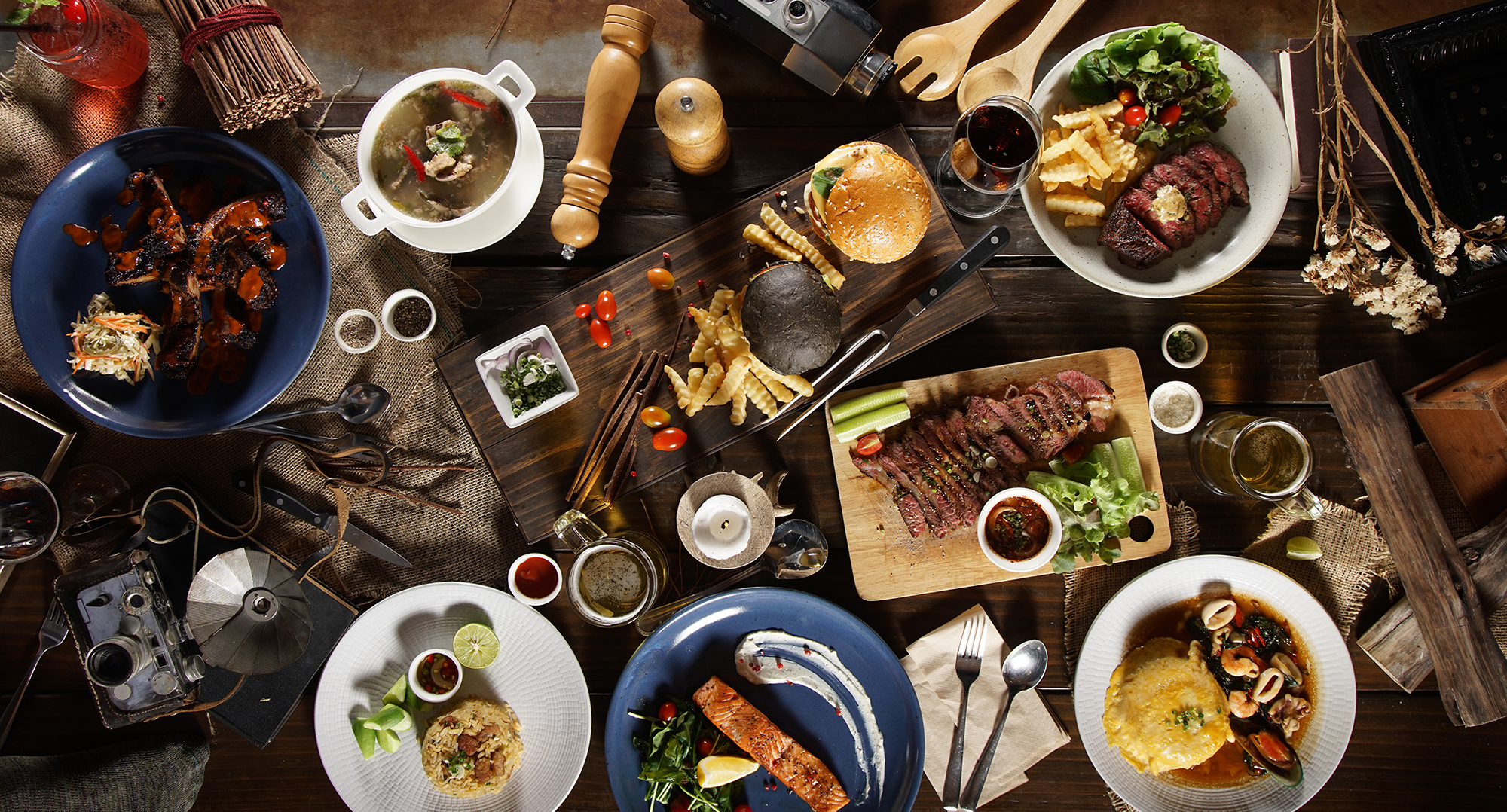Opinion: Why are we so obsessed with what people eat?

Food writer Sian Meades delves into why we love snapping, sharing and liking pictures of food on social media.
We are bombarded with images and descriptions of food from the moment we reach for our phones in the morning. It’s easy to blame our obsession with food on Instagram and other social media platforms. All those double taps on #avotoast photos, all those carefully-staged breakfast in bed shots. The must-have dish at the must-visit restaurant (don’t forget to check-in on Facebook) and the obligatory Sunday roast snap.
If social media is the magnifying glass to our society, then we are a society that is obsessed with what we put in our mouths. So why are we so interested in what people are eating?

Rawpixel.com/Shutterstock
Our obsession started before we could even talk, never mind tweet. Our intense dislikes and our unbridled enthusiasm for certain flavours begins as children. One of the earliest decisions we make is whether or not we eat what’s on the spoon in front of us.
However, that doesn’t necessarily explain why we’re fascinated by what other people eat. Perhaps that can be traced back to our school days. Our lunch boxes were the social media post of the primary school dinner hall. What did your best friend have in their sandwiches? Who had – shock, horror – supermarket own brand crisps? Whose mum had packed them something that you’d never seen before?
There’s nothing new about our obsession with what others are eating. It’s been there since we had plasters on our grazed knees.
Food is an easy way to connect with people
When we talk with people about what we’re having for dinner, it’s about much more than what we put on our plate. Ruth Tewkesbury is publicity manager for publishers Quadrille and Hardie Grant, who between them publish dozens of cookbooks a year. She says, “What people eat reveals other things about them. How much they earn, what they care about, how cultured they are, where they've travelled and how health conscious they are.”

astarot/Shutterstock
Discussion and engagement about food is just as strong online as it is in our day-to-day life. Experiencing food in a digital – and social – age means that we can travel around the globe at the tap of a screen. Sharing photos of our dinner and someone asking for the recipe is arguably the virtual equivalent of breaking bread. Thanks to technology, we don’t have to be eating together to form that connection.
However, social media has made us competitive, too. “We are always being presented with new places, restaurants and different types of food,” says Tewkesbury. “We constantly feel like we're missing out if we haven't tried the latest food trend or got an opinion on which restaurant does the best bottomless brunch.”
Food dominates our lives and we structure our entire day around it but Lucy Dearlove, producer of food podcast Lecker, thinks there’s another reason for our obsession. “I have a theory that we’re particularly obsessed with other people’s food in this country because we have no real indigenous food culture. The most popular dishes here truly belong to various immigrant communities who have helped to build modern Britain over the past century, as well as being influenced from our murky colonial past. We can find out so much by looking at someone else’s plate or Instagram feed, and we have so much to learn from it.”
When it comes to food, we’re the very best kind of magpies
Dearlove has a point. British food is eclectic and we’re just as excited by a Thai soup as we are a steak pie. When it comes to food, we’re the very best kind of magpies: curious, hungry for a new experience and happy to mish-mash with what we already know.

SCOTTCHAN/Shutterstock
The flipside of all this curiosity is that interest can quickly become judgement. The raised eyebrow from Jane three desks over when you’re tucking into a massive burger. Your own eye rolling about your pal’s smoothie bowl Instagram pic. We’re in danger of going beyond the curious and social media doesn’t help matters. We don't just follow our friends, we follow chefs, food writers and restaurants. Our view of food is being skewed towards the unattainable idea of a perfect meal every single time we scroll down our screens.
And when we share our food, we’re sharing a little bit of ourselves. We’re telling people – sometimes total strangers – about our likes, our culture, our aesthetic and perhaps even our bank balance. What we’re hoping for when we share is a connection but it doesn’t always happen and there’s a vulnerability in that.
Judging what someone eats, making them second guess what they should and shouldn’t put in their mouth can have a hugely negative impact on our health and our relationship with food. Even if we aren’t sharing the food on our plates, what we can share instead is the experience and the joy of it, and perhaps that’s what we’re all looking for. Maybe that’s the most natural human instinct of all.
You might also like:
What happened when I tried a new cookbook every week
Why I don't believe in superfoods
We need to talk about 'foodies'
Header image: Wayne0216/Shutterstock
Comments
Do you want to comment on this article? You need to be signed in for this feature